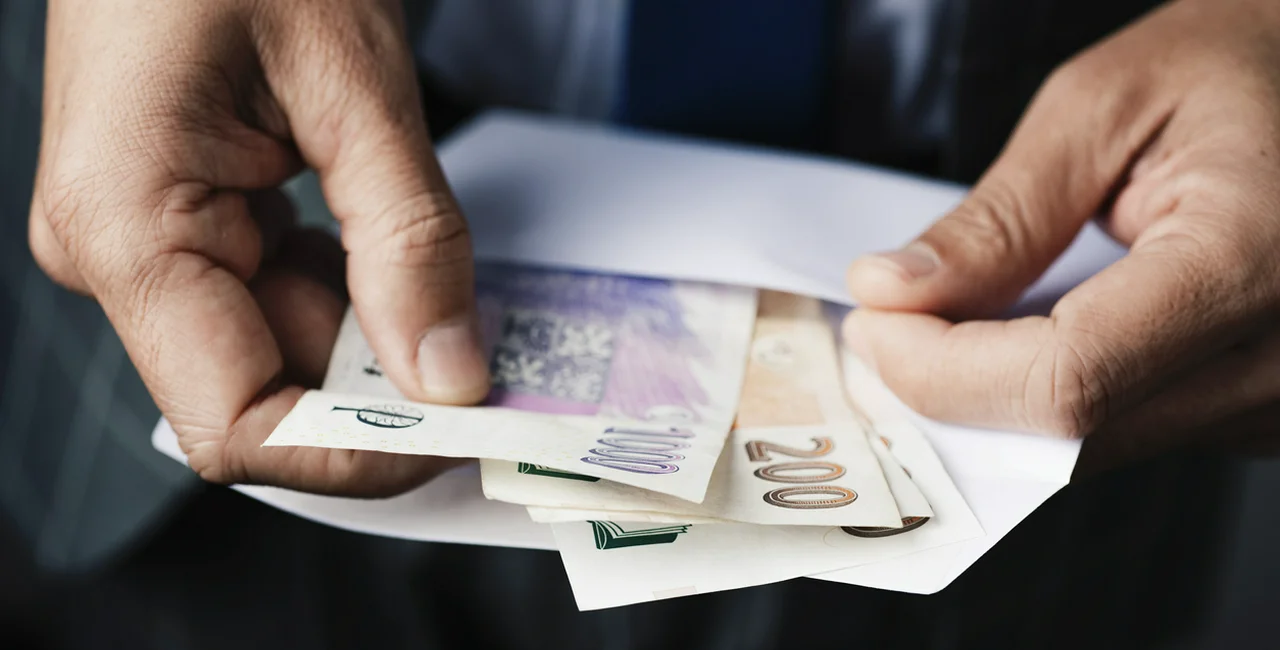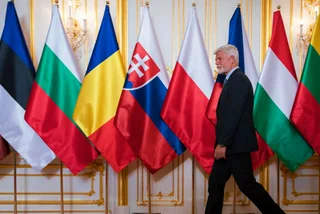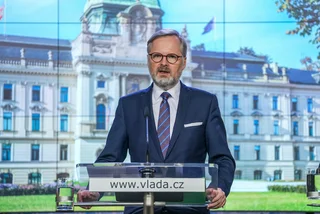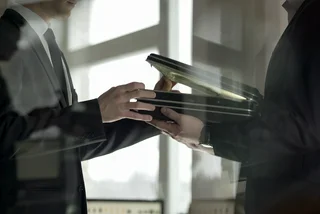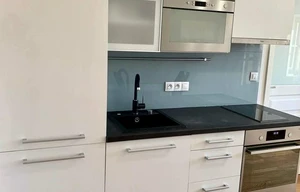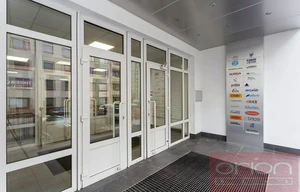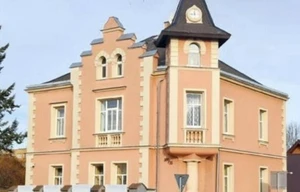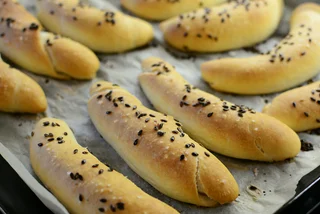PRAGUE Heavy-truck ban in Prague is expanded
The ban on trucks weighing over 12 tons will be expanded in Prague, including in Evropska, Karlovarská, and Plzeňská streets in the west of the city, the Prague Technical Traffic Administration has announced this afternoon.
This move aims to reduce noise and improve the environment for residents. Prague 6 transport councilor Ondřej Matěj Hrubeš expressed hope that regular – and more frequent – police checks will eliminate ultra-heavy trucks from Břevnov too. "Vehicles over 12 tons simply don't belong here. They excessively pollute the air and burden the surroundings with noise,” said Prague deputy mayor of transport Zdeněk Hřib.
RUSSIA Pavel clarifies Russian-surveillance comments
President Petr Pavel's spokeswoman Markéta Řeháková has clarified the president’s recent comments about stricter surveillance on Russians living in the West. Řeháková that Pavel did not imply calls for deportation or persecution.
In an interview with Radio Free Europe/Radio Liberty Thursday, Pavel had stated that increased vigilance was necessary due to Russia's war on Ukraine. Řeháková also emphasized that the surveillance measures should target only Russian citizens with specific "risk factors." Pavel also said in the interview that he sympathized with Russians living outside their country, many of whom do not approve of the invasion of Ukraine.
personal finance Czech households to be CZK 7,600 worse off after austerity bill
Analysis from the Czech Research Institute of Labour and Social Affairs released today shows that the average Czech household is expected to experience a yearly loss of CZK 7,614 following the government’s draft consolidation package. Families with children would be the most affected, while seniors would be impacted the least.
According to the analytical models, seniors living alone would lose CZK 990 per year after the nine tax changes. A single person of working age would have CZK 4,881 less and a childless couple would be worse off by CZK 11,509. The impact on a couple, at least one of whom is retired, would be CZK 2,521, according to the analysis.
weather Czech meteorology office releases mushroom-growth map
With the arrival of the mushroom-picking season this June, the Czech Hydrometeorological Institute has released a map that forecasts the likelihood of mushroom growth nationwide.
The map is created using data that reveals previous precipitation, and the forecast model is being improved through cooperation with experts from the Czech Mycological Society. It also takes into account the average temperature of the past seven days and evaporation rates. At present, the map shows that parts of the south and east of Czechia are most likely to see mushroom growth.
consumer prices EU inflation slows, Czechia remains above-average
Eurostat data released today shows that EU inflation rates saw a notable decline in May, dropping to 7.1 percent, down by 1 percentage point from April. This marks the slowest price growth in the EU since February 2022, coinciding with Russia's invasion of Ukraine.
In May Czechia experienced a decrease in inflation, to 12.5 percent. In the eurozone, inflation reduced from 7 percent in April to 6.1 percent, aligning with previous estimates. Monthly price levels in both the EU and eurozone remained steady.
presidency Pavel trusted by six in 10 Czechs – survey
According to a survey published today and conducted by the STEM agency, President Petr Pavel is perceived as a trustworthy politician by 60 percent of the Czech population. Ex-presidential candidate Andrej Babiš of the opposition ANO movement garnered support from nearly half of non-voters (in the 2023 election) and just one-quarter of those who turned out to vote.
A similar survey by the Czech Public Opinion Research Center also found that around three-fifths of the population trusted Pavel. Furthermore, the majority of respondents also believe that Pavel has significantly enhanced the prestige of the presidential office.
politics Czechia falls short on anti-political-corruption measures
According to a report released today by the Council of Europe's anti-corruption group, GRECO, Czechia has yet to fully implement most of the suggested measures to combat corruption among members of parliament (MPs), judges, and prosecutors. The country lacks a lobbying law, a code of ethics for MPs, and enforceable regulations regarding the acceptance of gifts and other benefits. The report emphasizes the need for an amendment to the prosecution law.
GRECO's analysis reveals that Czechia has fully implemented two out of the 14 recommendations, partially implemented nine, and completely ignored three. One major area of concern is the absence of legislation governing lobbying activities and the interactions between MPs and interest groups.
Security Russian nationals should be monitored, says Petr Pavel
President Petr Pavel, in an interview with Radio Free Europe, suggested that Russians living in the West should be subjected to increased surveillance due to their country's aggressive war. He drew a controversial comparison to the internment of Japanese citizens in the US during World War II, where over 110,000 people, including American citizens, were held in internment camps.
The president's spokesperson clarified that the president did not advocate for internment or persecution, but rather highlighted the history of restrictive measures against citizens of enemy countries. The Russian media criticized Pavel's comments, with one newspaper condemning his comparison and suggesting he would send Russians to internment camps.
Czech President Petr Pavel said that Russian civilians living in the West should be monitored by security services.
— Radio Free Europe/Radio Liberty (@RFERL) June 15, 2023
Speaking to @radiosvoboda, he said "when World War II started, all Japanese population living in the United States was under a strict monitoring regime as well." pic.twitter.com/SCRqC6717I
travel New highspeed Prague-Brno train ridiculed
Passengers on the modernized railway corridor between Prague and Brno will experience longer travel times despite the significant investment of approximately CZK 10 billion crowns in the modernization, reports Zdopravy. The Railways and Czech Railways Administration attribute the delays to higher traffic density. Although high-speed trains are expected to eventually shorten the journey, they remain more of a future aspiration.
The repairs, which lasted over two years, caused significant disruptions to long-distance transportation and delays of several hours. Social media reactions criticized the situation, sarcastically remarking on the irony of investing a large sum of money only to experience slower train travel. The new timetable will take effect from July 1.
ZjitÅ™enou atmosféru už asi neuklidnÃme, pÅ™esto pÅ™idáme pár faktů.
— Správa železnic (@Spravazeleznic) June 15, 2023
Bez modernizace by koridor souÄasný nápor vlaků nezvládl. TraÅ¥ splňuje souÄasné normy, má spolehlivÄ›jÅ¡Ã technologie a dÃky odboÄkám lépe odolá mimořádnostem. Vlaků je ale moc. Železnice je zkrátka populárnà a bez…
aid Refugee benefit changes could lead to abuse warn experts
New humanitarian benefits for refugees in the Czech Republic, set to take effect in July, are being criticized by experts and aid organizations. The changes, which include the cessation of the solidarity housing allowance and a shift towards involving refugees more in the cost of living and work, are expected to encourage illegal employment and may lead to the loss of housing for refugees.
Aid organizations argue that the new rules complicate their role in advising refugees and warn of potential exploitation and abuse. Concerns have also been raised about low housing cost allowances and the potential inability of some households to cover expenses. The government is facing opposition from various stakeholders and will decide on the form of support.
economy Drop in energy, flour prices good news for bakers
The situation for Czech bakeries has been improving since the beginning of the year due to lower energy and flour prices, according to Bohumil Hlavatý, the executive director of the Association of Bakers and Confectioners in the Czech Republic told ČTK. While many companies still have contracts with energy suppliers from last fall, conditions are expected to improve in autumn if high energy prices do not return.
Hlavatý also highlighted the need to increase wages for bakery employees, as they are currently the lowest in the food industry. The upcoming change in the Minister of Agriculture post is seen as positive news for the industry.
culture International glass exhibit opens in Jablonec nad Nisou
The International Triennial of Glass and Jewelry has begun in Jablonec nad Nisou, Czech Republic, showcasing the best in utilitarian glass and jewelry. The event, organized by the Museum of Glass and Jewelry, runs until April 7 next year, and features four exhibitions and an accompanying program focusing on trends, design, art, and sustainable production.
This year's triennial introduces young artists under 35 who work with glass. The main exhibition, "Trendy.design.produkce," showcases products from various companies and studios. The Triennial also emphasizes environmental protection, demonstrating glass as a recyclable material. Visitors will have the opportunity to vote for their favorite exhibits.













 Reading time: 6 minutes
Reading time: 6 minutes 